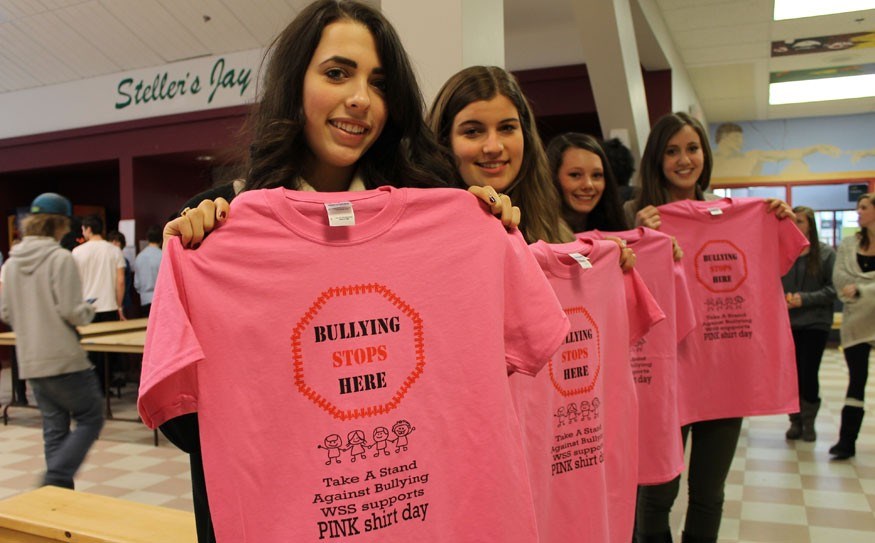The difference between assertive and aggressive can be a fine line.
Students at Don Ross Secondary School (DRSS) are part of an experiment to measure the effectiveness of a program that teaches students to hold their power. The program, called Safeteen, is being offered to Grade 9 students at DRSS.
Anita Roberts created the Safeteen presentation back in the 1970s. Roberts has been working in the field of violence prevention since 1976 and she has travelled the world sharing her teachings.
"Our tag line is 'hold your power, speak your truth' and we're teaching them through role plays to deal with verbal violence... so they can stand up to bullies and hold their power, so they don't feel that the people who are assaulting them verbally are taking anything from them," said Roberts from her base in Vancouver.
She explained that students who go through the Safeteen program act out a series of roles based on their own life experience and through that process the Safeteen facilitators teach the students how to go inside and connect with the most powerful centred part of themselves. With that established the facilitators teach the students to find their truth and then express it twice and a third time if needed.
As an example, Roberts said a student might declare that their truth is simply that they don't like the way someone is talking to them. Students in the Safeteen program are instructed to make eye contact, giving what she calls 'the look,' with the person making them feel uncomfortable then speak.
"It's a basic formula which they can use in any situation," Roberts said. "We teach them how to rise up within themselves."
The training goes even deeper. According to Roberts, 85 per cent of assaults on kids come from someone the young person knows. Because of that, Safeteen participants are taught, for example, how to deal with a creepy relative or family friend who slides a hand onto a knee at a dinner table.
"We teach them how to pick up the little finger firmly and move the hand and use 'the look,'" explained Roberts. "The idea is not to break the finger but to give the message.
"People who hurt people are hurt people. There are people who are actually feeling empty on the inside and they are feeling empty of empowerment themselves, so they have a feeling of needing to feel powerful and they begin to steal power."
Dr. Shelley Hymel, a University of BC professor in the school of psychology, is assessing the work being done by Roberts. Hymel said she is scientifically measuring the effectiveness of what Roberts does.
Grade 9 students at Don Ross Secondary, with permission from their parents, were asked in January to complete a survey about how they might handle challenging situations and how they think people behave, especially in dating relationships. Student participation was voluntary. Afterwards, about half of the students participated in the Safeteen workshop; the others did not. All students then filled out a second survey a few days later to see if their ideas had changed. Those students who didn't take part in the original Safeteen workshop will get an opportunity to do so before the end of the school year.
"There's evidence out there that the schools that do focus, in various ways, on the social/emotional side of learning actually end up having improved behaviour, less conduct problems and all those kinds of things as well as higher achievement," said Hymel during a reading break at UBC.
"In the world of schools a lot of these programs are developed by people with experience and passion, not scientific skills and evaluation," said Hymel.
Students across the country participated in Pink Shirt Day Feb. 27 to spread the word about anti-bullying.




